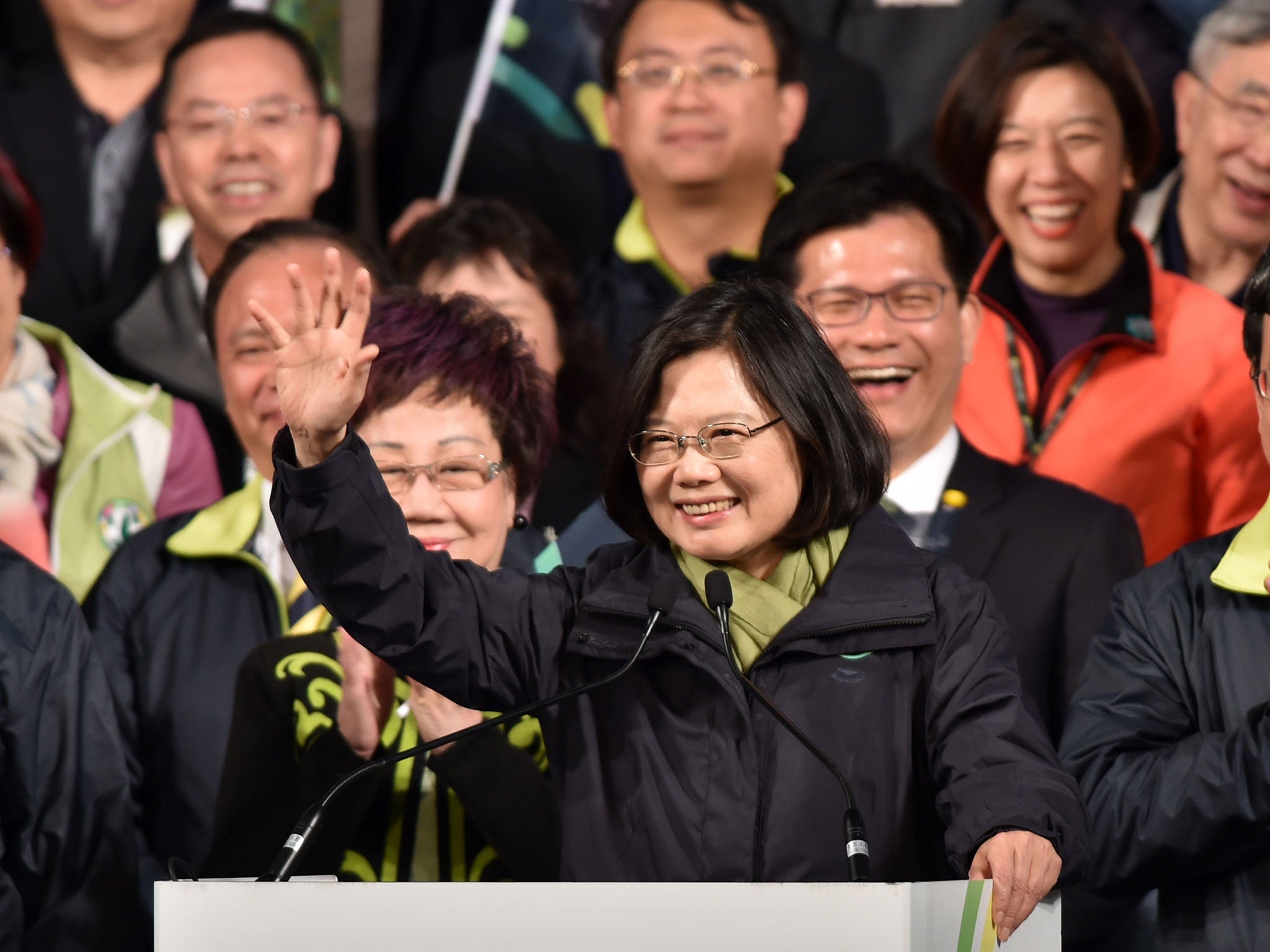Taiwan elections: China denies significance of landslide victory for pro-independence candidate
'We hope and believe that the international community will adhere to the one-China principle'

Your support helps us to tell the story
From reproductive rights to climate change to Big Tech, The Independent is on the ground when the story is developing. Whether it's investigating the financials of Elon Musk's pro-Trump PAC or producing our latest documentary, 'The A Word', which shines a light on the American women fighting for reproductive rights, we know how important it is to parse out the facts from the messaging.
At such a critical moment in US history, we need reporters on the ground. Your donation allows us to keep sending journalists to speak to both sides of the story.
The Independent is trusted by Americans across the entire political spectrum. And unlike many other quality news outlets, we choose not to lock Americans out of our reporting and analysis with paywalls. We believe quality journalism should be available to everyone, paid for by those who can afford it.
Your support makes all the difference.China’s official media are bending over backwards to minimise the significance of the landslide victory of pro-independence politician Tsai Ing-wen in Taiwan’s presidential election.
“Taiwanese chose Tsai, not independence,” was how Global Times spun the victory for the Democratic Progressive Party, which campaigns for Taiwan’s independence from China, and its leader.
“Tsai made prudent remarks and took an ambiguous attitude towards cross-Straits policies. She kept stressing maintaining the status quo of cross-Straits ties,” it added. “The victory doesn’t mean the majority of Taiwanese support Taiwan independence.”
China’s foreign ministry, by contrast, issued a stark warning to the outside world not to seize on Ms Tsai’s victory as an opportunity to prise the two Chinas apart.
“We hope and believe that the international community will adhere to the one-China principle [and] oppose Taiwan independence in any form,” spokesperson Hong Lei said.
“The Taiwan question falls in China’s internal affairs, there is only one China and both the mainland and China belong to one China, and China’s sovereignty and territorial integrity brook no division.”
But Ms Tsai’s victory and the her party’s unprecedented success in seizing control of parliament are a rejection by the island’s electorate of China’s claims.
President Ma Ying-jeou of the Kuomintang, who will limp on until the handover in May, did more than any previous Taiwanese leader to build relations with the mainland. In September, in the first such event ever, he met China’s President Xi Jin-Ping in Singapore. During his seven years in office, Mr Ma Ying-jeou oversaw the lifting of bans on travel across the Taiwan Straits. He also fostered a series of trade deals which brought the island and the People’s Republic far closer than they have ever been since Kuomintang leader Chiang Kai-shek and his forces fled there in 1949, at the end of the Chinese civil war.
But this new relationship proved to be too close for the Taiwanese: that was the electorate’s verdict on Saturday.
Taiwan’s democracy, which dates back only to 1995, is a somewhat tender plant towards which the islanders feel very protective. They observe the way that Hong Kong is being slowly but surely digested by China, despite President Deng Xiao-ping’s promise to Britain that its unique political and legal institutions and free press would be protected for half a century after the 1997 handover. And they are extremely wary of going down the same route.
Their fears of being bullied into conformity were reinforced on the eve of the election when a Taiwanese pop star who waved Taiwan’s national flag during an appearance on South Korean television was forced by her management company to issue a video apology for fear of offending nationalist sentiment on the mainland.
The awkward fact is that Taiwan’s ever-growing proximity to Beijing – at the cost of wider relations with its Pacific neighbourhood – is damaging the island’s economy.
In recent years growth has stagnated while youth unemployment and house prices soared, and this year its GDP is forecast to grow by a scant 0.8 per cent.
President Xi’s handshake was an uncomfortable reminder of what Hong Lei said yesterday: that the mainland will never let Taiwan off the leash.
The sobering fact that there are 700 Chinese missiles are pointed at the island from the mainland are proof of that.
Join our commenting forum
Join thought-provoking conversations, follow other Independent readers and see their replies
Comments